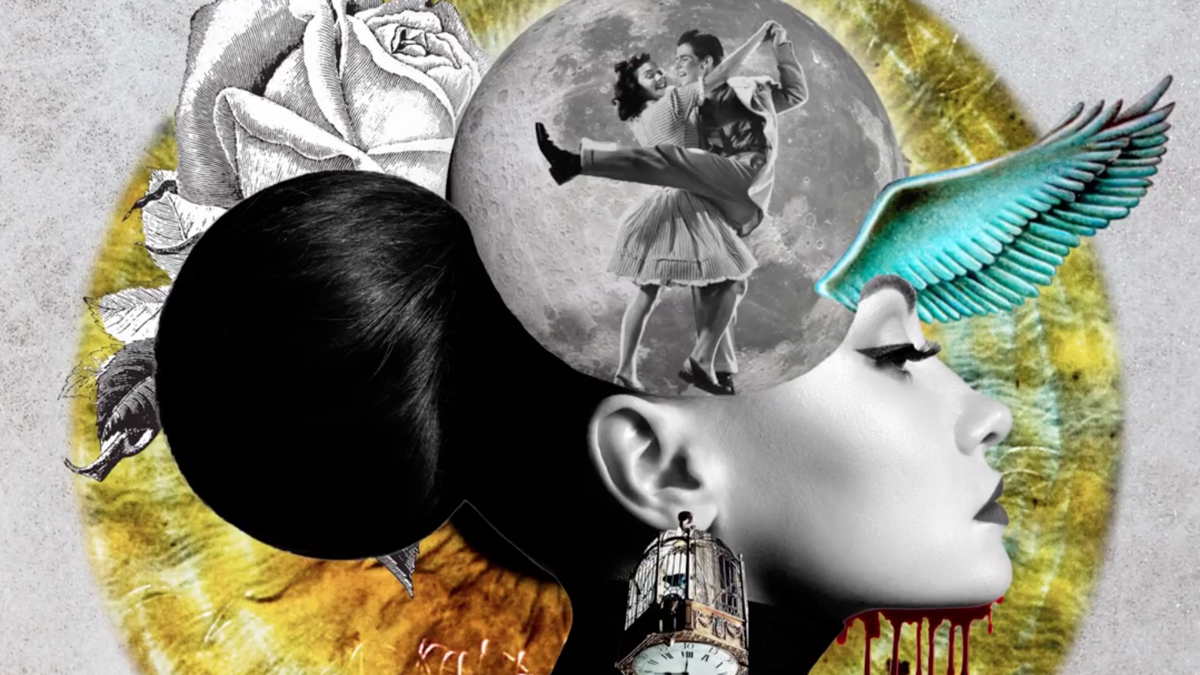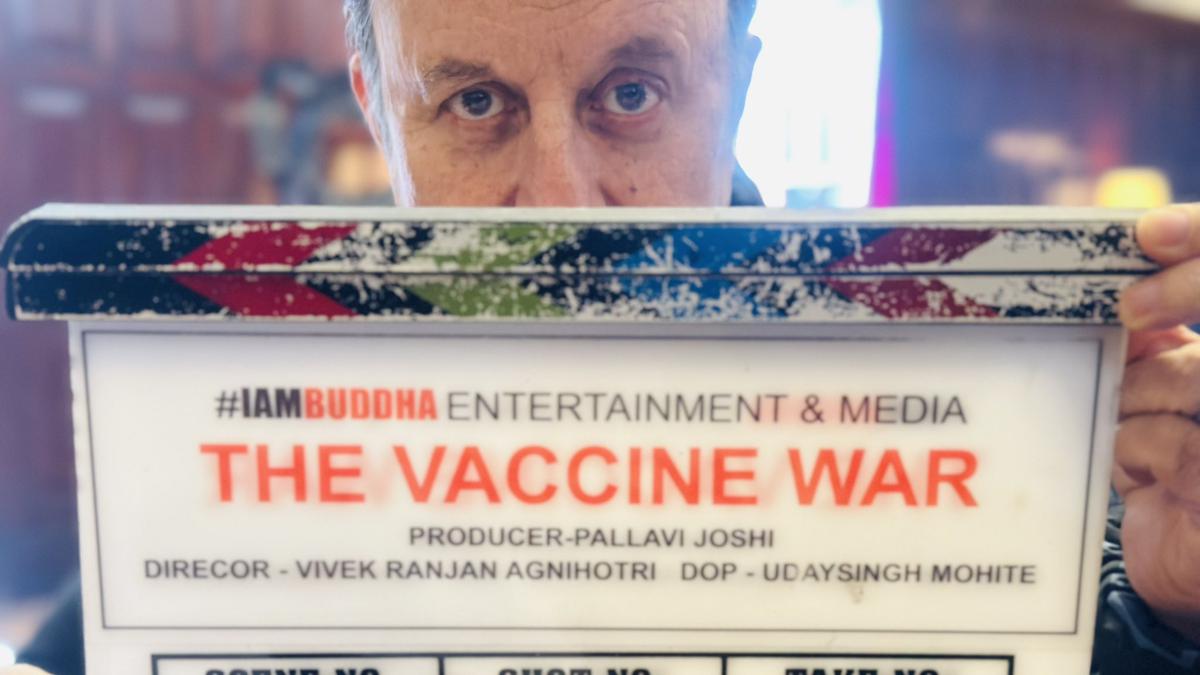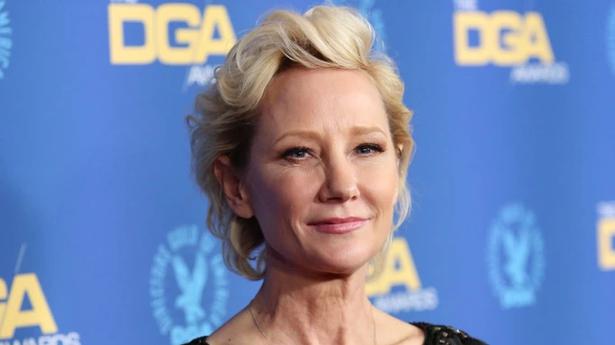Lisa Ray has added another tag to her already long list, that of actor, model, author, philanthropist and social activist. She is the force behind the recently-launched curator-led digital art and NFT (non-fungible token) platform, TheUpsideSpace — which brings to the centerstage a new generation of artists from South, East, and West Asia. Ahead of their premier at Art Dubai (March 1-5), we catch up on Zoom.
Lisa Ray
| Photo Credit:
Trisha Sarang
I notice that the walls of her Dubai home are covered with art, including works by Jogen Chowdhury and Suhas Roy. “I have loved art since I was a teen. I remember spending my first modelling cheque, when I was about 18, to buy an artwork [points to a work by C. Bhagyanath],” says Ray, admitting that she would take her collection with her from house to house, “across Hong Kong, Singapore, Mumbai and Dubai”, because they were essential to her well-being. Now, after over 30 years of collecting South Asian art (she admits to a soft corner for the Bengal School), she wants to give back to the community, with a “welcoming” digital art space.
However, the hard truth is that TheUpsideSpace launched in the shadow of the crypto slump. And while the collapse has inevitably coloured NFTs and digital art — Indian and international collectors still remain speculative — it is a growing segment. Artists such as Raghava K.K. and Harshit Agarwal are leading the market; the India Art Fair, in both its 2022 and 2023 outings, allocated special pavilions for NFTs; while curators such as Myna Mukherjee are showcasing interesting exhibitions. Ray believes the market will stabilise soon.
UBIK’s Camera Shy
| Photo Credit:
TheUpsideSpace
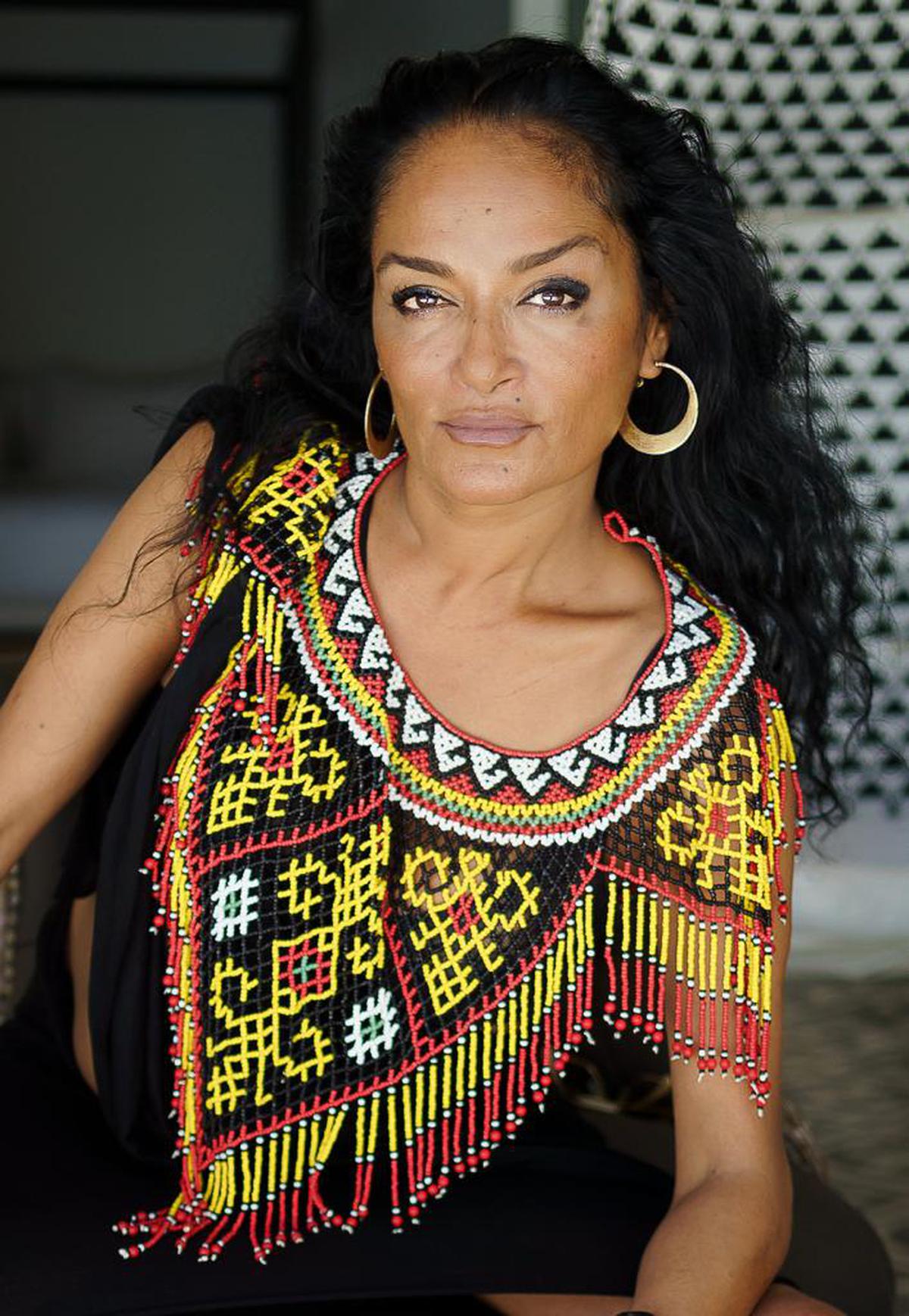
Bandana Tewari
| Photo Credit:
TheUpsideSpace
“Any form of innovation, after a big upswing, sees a trajectory of scepticism. This happened with the internet in the 90s. The fact is, whether we like it or not, all facts point to our lives becoming more virtual in the near future. Hence, virtual assets [art and even real estate] will be legitimate acquisitions. The metaverse will make fantasy into reality. I suppose, with AI, VR, crypto, NFTs and the monstrous rise of gaming, NFTs will simply have to be more engaging, cool, community-based and exclusive. The incremental rise in value-adds that are attached to NFTs will be crucial for its survival. We are already seeing this phenomenon take place.”Bandana TewariWriter, sustainable activist
Contemporary drive
Ray, 50, co-founded the platform with Singapore-based art collector and philanthropist Ayesha Khan. The two connected during the early days of the pandemic, in Singapore. As fellow expats, they had a desire to make contemporary regional art more accessible to a global audience, and to “refresh and modernise the art world” while leveraging Web3 technology. “Despite the challenges, it is a space that has much potential and we felt it was necessary to explore. This technology is the next step in the conversation around authenticity, provenance, engagement and royalty in art.”
While NFT marketplaces abound across the globe, Ray and Khan were clear their platform would be curator led. “NFTs and digital art are the vehicles to a new audience and it will transform the art ecosystem. Curators will become the guides for artists to reach across platforms to a global audience,” she says. While their roster has well-known artists such as Seema Kohli, Ranbir Kalekar, Waswo x Waswo, and Sarnath Banerjee, it also has an equal mix of emerging names such as visual artist Siddhant Vernekar.
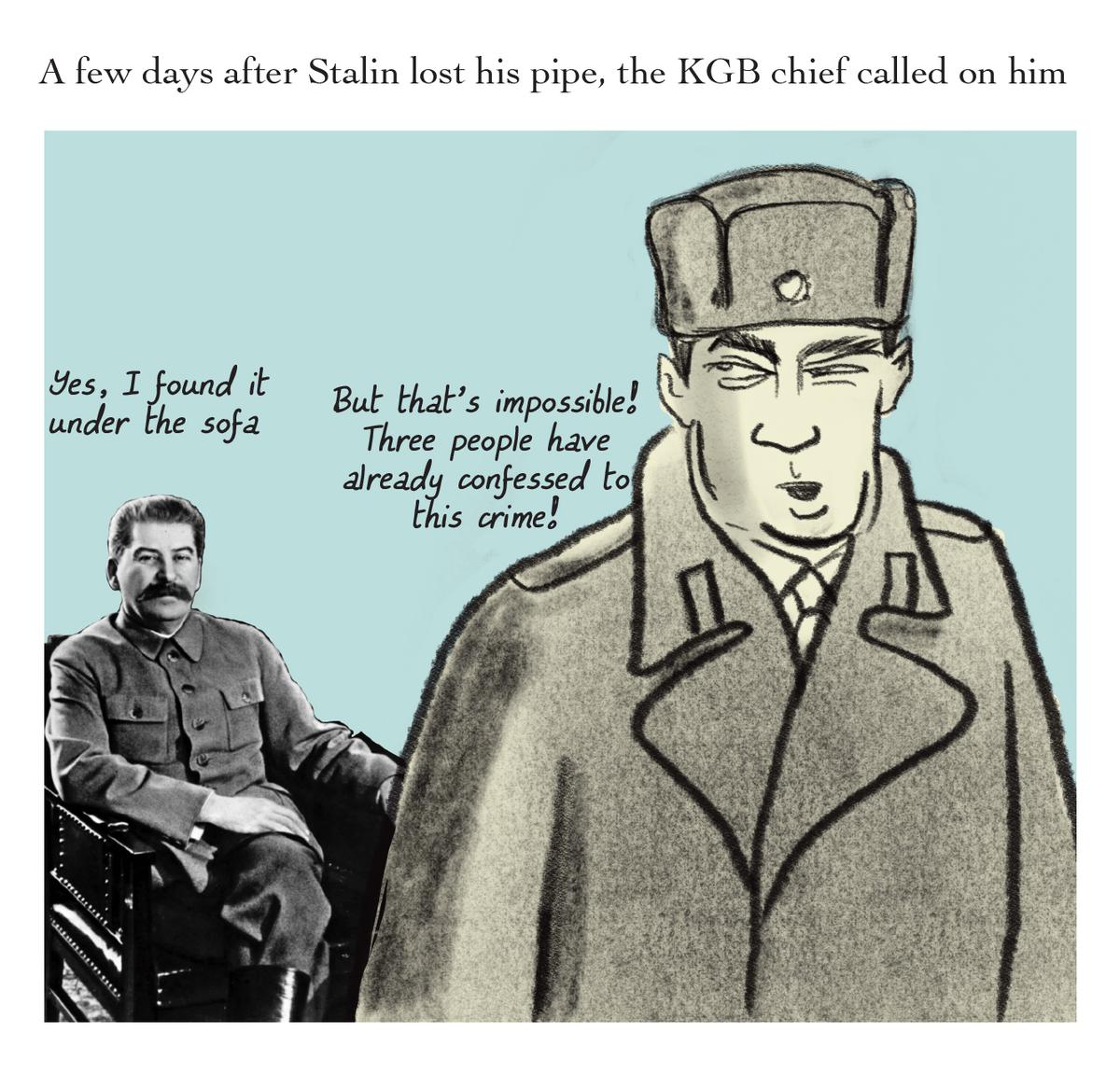
Sarnath Banerjee’s KGB
| Photo Credit:
TheUpsideSpace
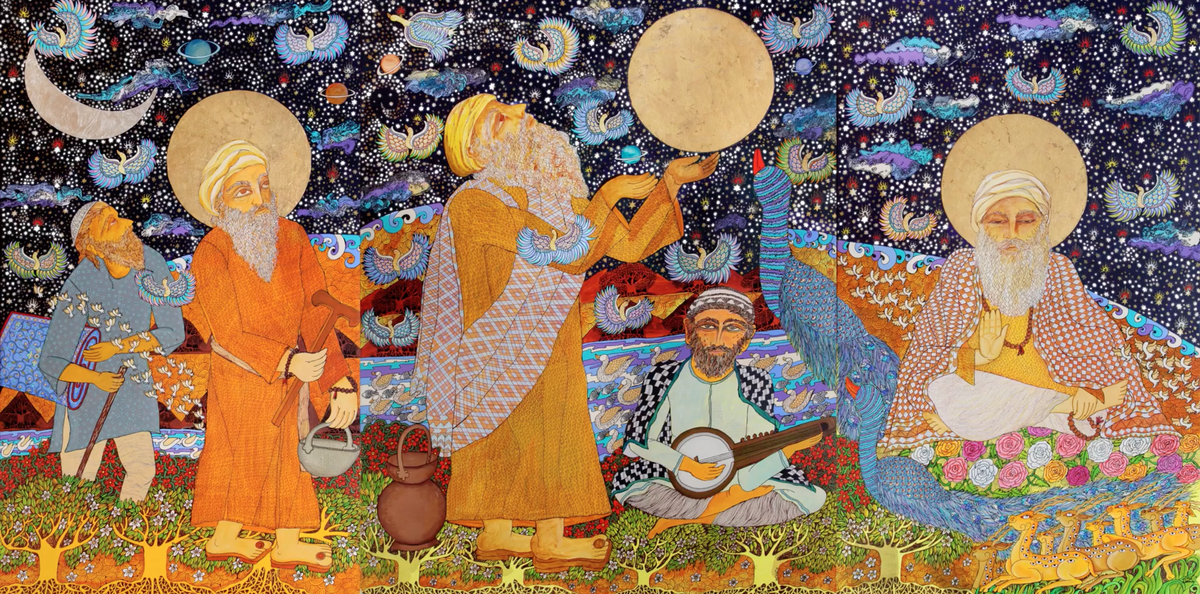
Seema Kohli’s Gagan Mein Thaal
| Photo Credit:
TheUpsideSpace

Supplementary – Reality
| Photo Credit:
TheUpsideSpace
TheUpsideSpace includes an online art lab, a creator studio, and an inclusive community for discovery and discourse. It features both traditional visual artists, who are new to NFTs, and new media artists who want to increase the reach of their experimental art. “With the ushering in of artworks and practitioners, the online space can grow along with the physical art space, more holistically. We have upcoming exhibitions with Patachitra artists; we want to extend this outreach to artisans and traditional art as well,” she adds, explaining that because traditional artists could find it intimidating to create their own NFTs, they will also introduce phygital (a combination of physical and digital) art to attract the Web2 audience.
An open invitation
“We use the Ethereum blockchain, which has become much greener. I am not saying that it isn’t a bit like the Wild West, with risks involved, but we have gone through [several] iterations and a crypto winter.” TheUpsideSpace accepts credit cards, cash and crypto because, as Ray states, “We give our buyers options. We are trying to make owning and enjoying art as simple as possible, along with the representation to get it out there and a seat at the table.”
Harsimran Juneja’s Growing Invertebrates from Mobocracy x Democracy
| Photo Credit:
TheUpsideSpace
Un-labelling is important, too
Having a well-known name like Ray at the helm is bound to help open doors. Recent tie-ups such as a collab with Latitude 28 (for the show Mobocracy x Democracy curated by Priyanshi Saxena) and their outing at Art Dubai are cases in point. Her influence can also seen in the selection of curators — from actor-artist Kelly Dorji, to Mukherjee of EnGendered, a transnational arts and human rights organisation, and White Noise, an NFT-based art endeavour founded by Hari Pilaka, Parth Taco & Sajid Wajid Shaikh, to writer-sustainable activist Bandana Tewari. “People from other industries lead to cross pollination,” says Ray. “We are about labelling [an actor who is also a curator, for instance] and un-labelling.”
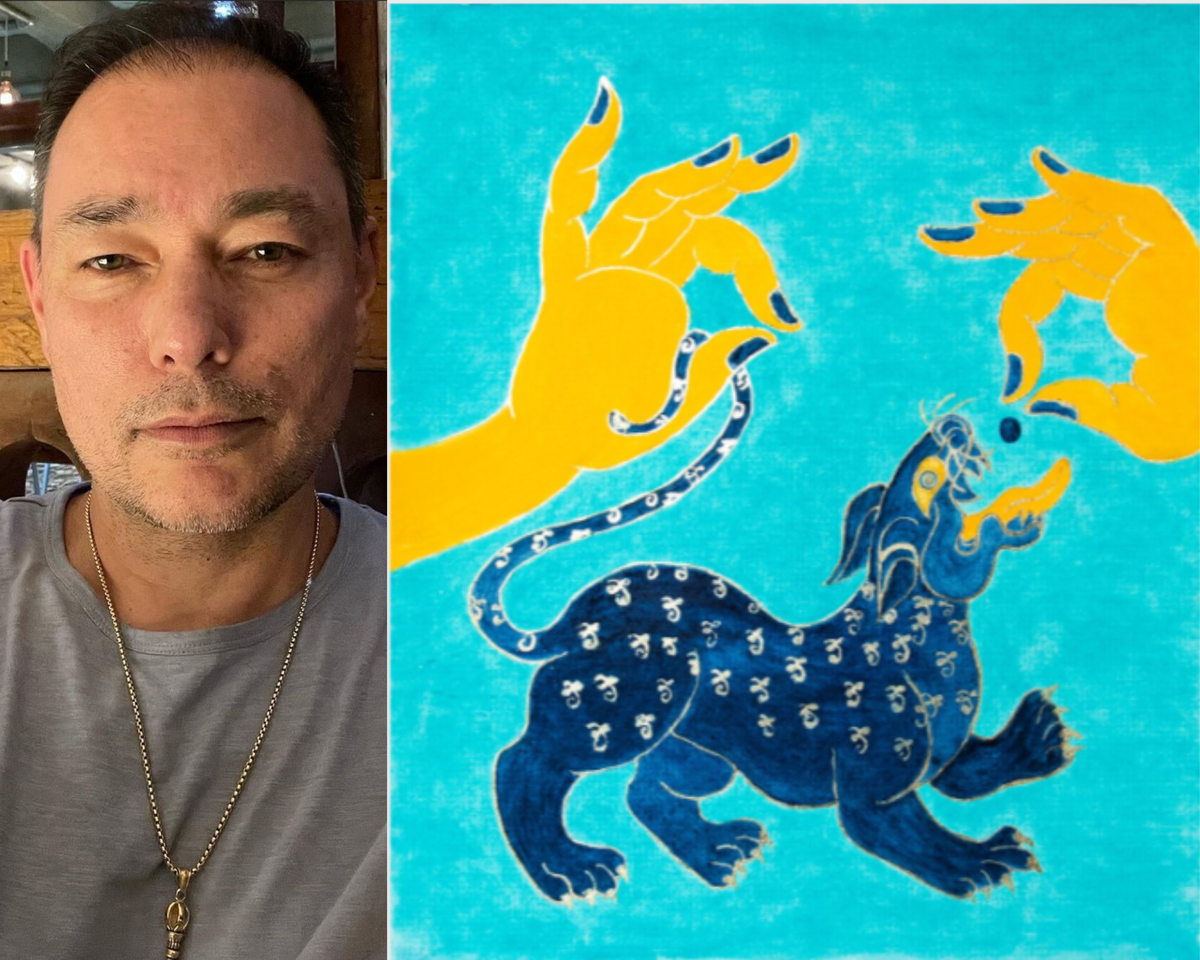
Kelly Dorji; and Little Blue Pill from the model-artist’s Playful Divine series
One is naturally curious to see what a curator like Bhutanese actor-model Kelly Dorji will bring to the table. “Kelly is an unknown gem. He has a creative understanding, he has his own gallery, and is a celebrated painter in Bhutan. So, it will be exciting to see what he will bring [in one of TheUpsideSpace’s upcoming shows] because Bhutanese artists are just gaining exposure,” says Ray, adding, “Like Zimbiri, who has an art expression that has not been seen or celebrated enough — even though she is represented by Nature Morte and has shown in exhibitions abroad. She has painted modern interpretations of Bhutanese iconography.” The show will also include a classic Thanka painted by a Bhutanese monk, which could perhaps be “the first classic Bhutanese painting to sell in the NFT space”.
The writer is a critic-curator by day, and a visual artist by night.


